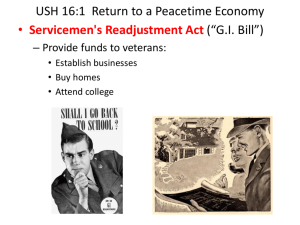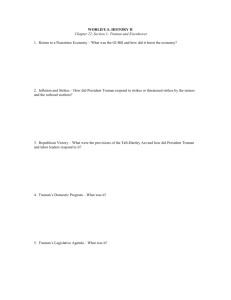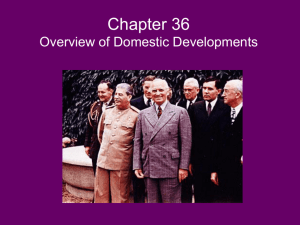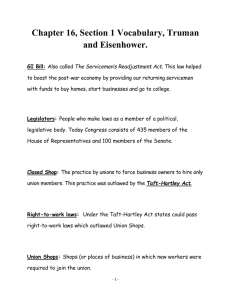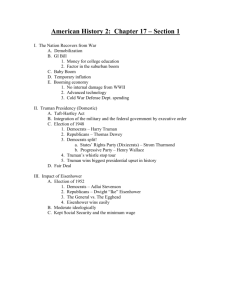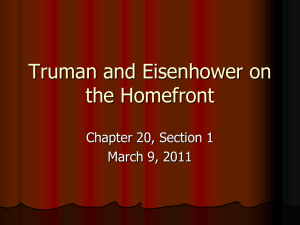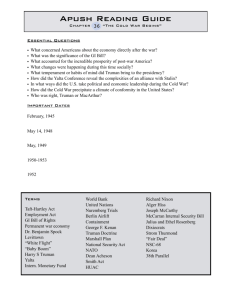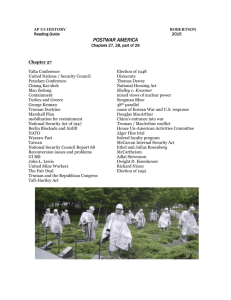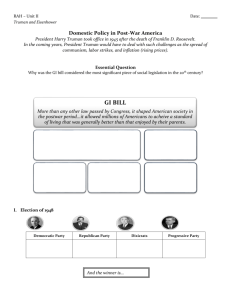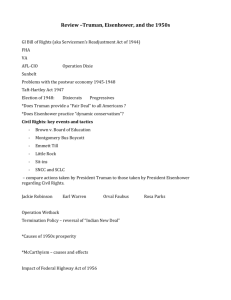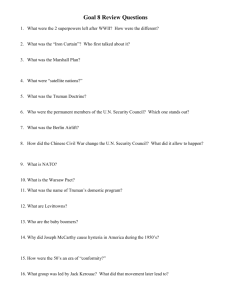Truman and Eisenhower
advertisement
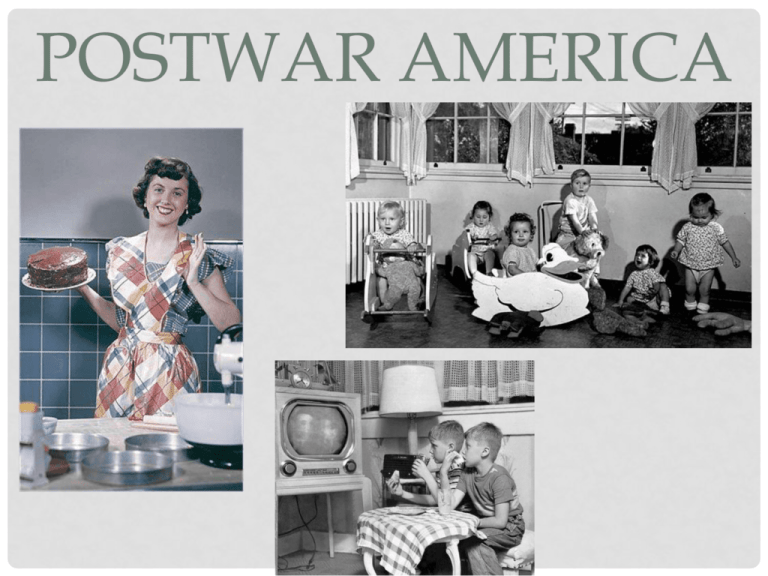
POSTWAR AMERICA TRUMAN AND EISENHOWER 23.1 RETURNING TO A PEACETIME ECONOMY • After the war, many Americans feared returning to a peacetime economy • However, it continued to grow • Rushed out to buy consumer goods they had long desired • Why were Americans worried? • Think about how WWII changed the work force GI BILL GI BILL • Provided funds to veterans to help them establish businesses, buy homes, and attend college • Helped create American middle class • Hurt minorities TAFT-HARTLEY ACT AND CLOSED SHOPS TAFT-HARTLEY ACT • Outlawed the closed shop (practice of forcing business owners to hire only union members) • Held irresponsible unions in check TRUMAN’S LEGISLATIVE AGENDA • Expansion of social security benefits • Raising minimum wage • Public housing • Asked Congress to pass a broad civil rights bill that would protect African Americans’ right to vote and make lynching a federal crime • Little success- faced with conservative Southern Democrats and Republicans ELECTION OF 1948 1948 ELECTION AND TRUMAN'S FAIR DEAL Truman (support from laborers, African Americans, and farmers) vs. NY Governor Thomas Dewey (predicted winner) TRUMAN WINS ELECTION OF 1948 “DO –NOTHING” CONGRESS TRUMAN’S FAIR DEAL TRUMAN’S FAIR DEAL Expansion of social security benefits Increase in the minimum wage A program to ensure full employment A program of public housing and slum clearance A long range plan for environmental and public works • A system of national health insurance • A broad program of civil rights legislation • • • • • EISENHOWER’S DYNAMIC CONSERVATISM EISENHOWER TAKES OFFICE IN 1952 • “Dynamic conservatism” • Balancing economic conservatism with activism in areas that would benefit the country FEDERAL HIGHWAY ACT FEDERAL HIGHWAY ACT • Largest public works program in American history • $25 billion for a 10 year effort to construct more than 40,000 miles of interstate highways • What would be the benefits? Think of society today
